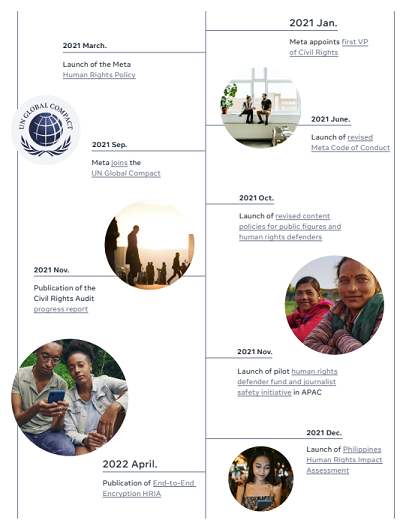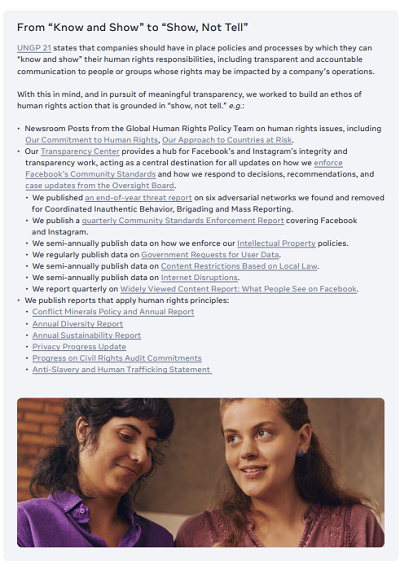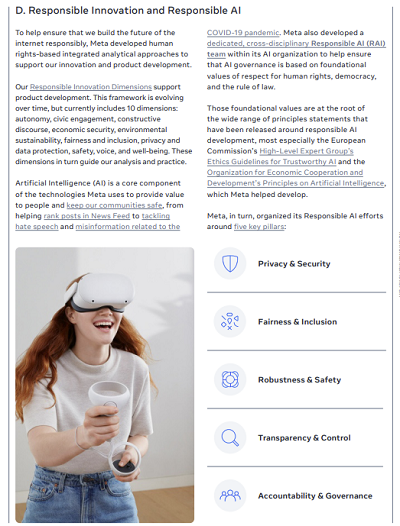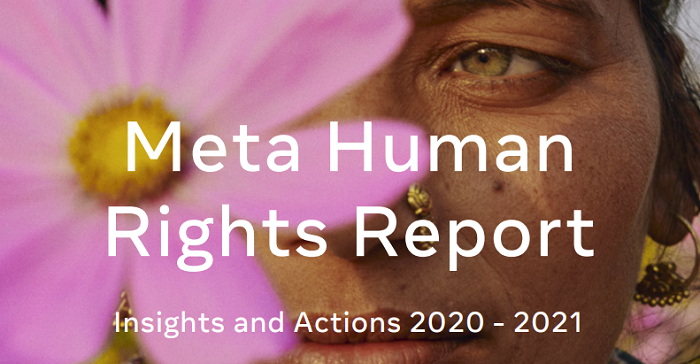Meta has today published first annual Human Rights Report, which takes a deep dive into how the company is working to address potential human rights concerns, stemming from its products, policies and business practices.
The 83-page overview looks at how Meta is working to align with human rights principles in its various product decisions and developments. Those principles include the right to freedom of expression, the right to privacy, the right to equality and non-discrimination, child protection, and more.
It’s an interesting look at the efforts Meta has made on these fronts, which is essentially a summary of its various policy updates and shifts. You can read the full report here, but in this post, we’ll take a look at some of the highlights.
First off, Meta outlines its key mission, which may raise some eyebrows among skeptics:
“Meta’s mission is to give people the power to build community and bring the world closer together. We seek to advance our mission in a manner consistent with the promotion of humanity’s fundamental rights: freedom of expression, privacy, non-discrimination, and more.”
I’m not sure that people outside of Meta would agree that these are the company’s driving principles, but that’s what Meta’s going with here as the main drivers for its actions.
Not, like, profits and growth at all costs. Those don’t rate a mention in this context.
In this respect, the report feels somewhat disingenuous, as these are clearly significant drivers of the company’s actions. But given the focus of this specific report, it makes sense that it’s steering away from these alternative motivators as it looks to highlight the good work that it’s doing to better protect human rights.
The report provides an overview of Meta’s various developments in improving its policies, in alignment with human rights principles.

Each section provides an in-depth look at key human rights stances, and how Meta has moved to align with such through its evolving approach.

It also looks at how Meta is now integrating these same elements into its development of new technologies, like VR and the metaverse.

The report also looks at how Meta has managed various major incidents, like the US Presidential election, as well as elections in Myanmar and the Philippines, and the COVID-19 outbreak.
It’s an interesting look at Meta’s various policy shifts, and how it’s sought to evolve its processes in line with community need. And really, the main purpose of the report is accountability, and ensuring that Meta keeps these principles in mind as it goes about building its business.
In this respect, it’s a good overview of the various challenges the company has faced, and how it’s dealt with each. Which could be a good way to get a feel for what exactly Meta has done, amid persistent criticism of its lack of action.
It’s interesting to consider how we got to this stage, where social networks like Facebook have become so influential, on a global scale, that they need to report their adherence to human rights principles. What was once a trending app among teens has now become one of the most significant connection platforms in the world, and with that comes great responsibility in terms of ensuring users are safe, and that key principles like these are upheld, in all applications.
Meta clearly doesn’t always get this right, but this document provides some valuable insight into the depth of its efforts to address such concerns.
You can read Meta’s full Human Rights Report here.



